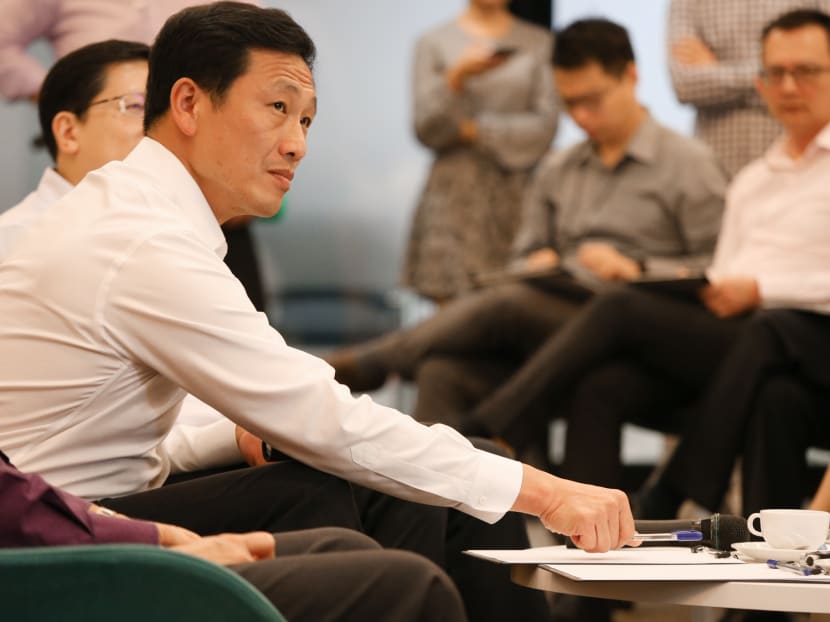S’pore shouldn’t overcorrect education system and undermine its rigour: Ong Ye Kung
SINGAPORE — While Singapore is making major steps to reduce stress in schools, Education Minister Ong Ye Kung warned against “overcorrecting” the system, to the extent that academic rigour is undermined.

Earlier on Monday, at a closed-door Schools Work Plan Seminar held by the Ministry of Education (MOE), Education Minister Ong Ye Kung had raised the Japanese example in his speech to illustrate the importance of not overcorrecting the education system here.
SINGAPORE — While Singapore is making major steps to reduce stress in schools, Education Minister Ong Ye Kung warned against “overcorrecting” the system, to the extent that academic rigour is undermined.
Announcing sweeping changes to school-based assessments on Friday (Sept 28), Mr Ong nevertheless was confident that the Republic will not go down that route — by learning from Japan’s experience.
Starting from the 1980s, the East Asian country had introduced drastic changes under what it called the Yutori (loosely translated as “relax”) policy to its education system.
Schools reduced emphasis on rote learning and memory work, and shifted their focus towards creative learning and developing soft skills. Curricula were also scaled back, and the school week was cut down from six days to five.
However, the move backfired as students’ academic performances deteriorated, and critics argued that the Yutori reforms lowered the quality of education. In the end, the Japanese government had to unwind the policy.
Mr Ong said: “The way they implemented it was a bit different. There was a drastic cut in curriculum hours… What we are doing here is an optimisation between rigour and the joy of learning.”
Earlier on Monday, at a closed-door Schools Work Plan Seminar held by the Ministry of Education (MOE), Mr Ong had raised the Japanese example in his speech to illustrate the importance of not overcorrecting the education system here.
“While well-intentioned, Yutori’s objective was ahead of its time, and its implementation — not helped by a rather inappropriate name — was perceived as too drastic a move,” said Mr Ong at the seminar. “We can learn from Japan’s experience. It is an instructive example, demonstrating the challenge we might face as we re-calibrate the balance between joy and rigour within our system.”
PSLE ‘STILL IMPORTANT’
On Friday, Mr Ong announced that exams and graded assessments for students at certain primary and secondary levels will be reduced from next year.
But he reiterated that the Primary School Leaving Examination (PSLE) is here to stay.
The PSLE is a “good feature” in the education system, which allows students to take stock of what they have learnt during the six years of primary education, said Mr Ong, adding that it is also a key mechanism for posting to secondary schools.
For years, critics have called for the PSLE to be abolished, saying that it adds pressure on both students and parents.
Mr Ong had previously laid out his ministry’s position on PSLE, when he spoke in Parliament in July in response to a motion on the future of education that was moved by the Nominated Members of Parliament.
Describing the PSLE as a "sacred cow", Mr Ong had admitted then that the exam was "far from a perfect system", as it gave parents and students a lot of stress at times.
But it also happens to be “the most meritocratic, and probably the most fair of all imperfect systems”, he had said. “If we scrap it, whatever we replace it with to decide on secondary school postings, I think it is likely to be worse."
On Friday, Mr Ong acknowledge that because of the importance of PSLE, “people take it seriously and it has become a strong feature in the education system”.
Still, most parents whom he spoke with support having the exam, as it inculcates discipline and acts as “good training in life”, he said.
However, the PSLE must be put into perspective, Mr Ong stressed.
“Let the child do their best and don’t let it be the be all and end all — that’s the exam that determine your life, which we all know it does not. If we think it does, it’s time to soul-search… does it really?” he noted.
He added: “I think the fact that the children tried their best, take stock of what they’ve learnt, exercise discipline, work together with parents — that’s something very valuable for life. Not the results, but the process you get out of PSLE, it is very valuable in life.”
Sign up for TODAY's WhatsApp service. Click here:









